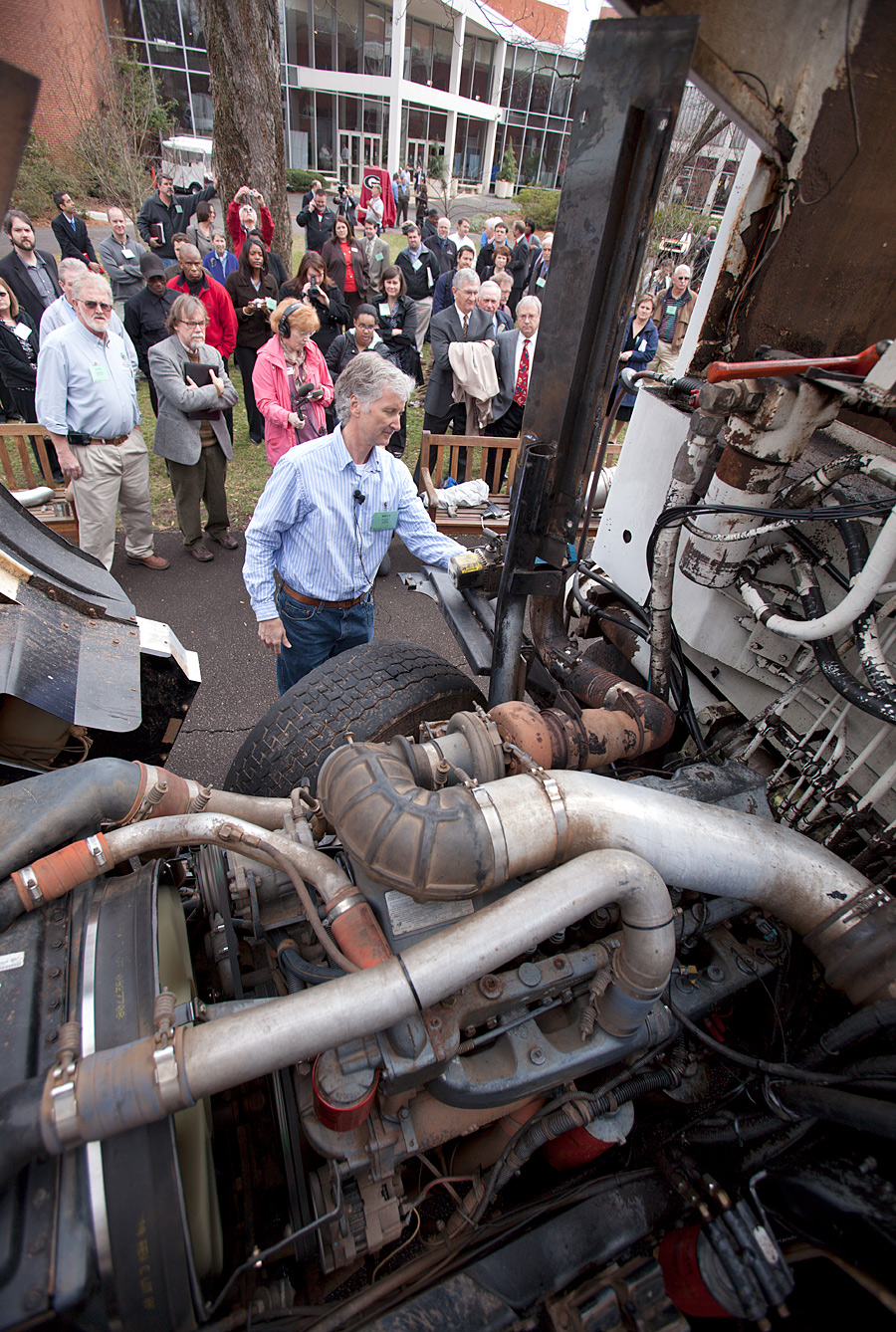UGA President Michael F. Adams was joined by Athens-Clarke County Mayor Heidi Davison and Stan Meiburg, the acting regional administrator for the Environmental Protection Agency, in an event that highlighted how funds from the American Recovery and Reinvestment Act are being used to improve air quality and create jobs in Georgia.
The Feb. 22 event at the Georgia Center for Continuing Education Conference Center and Hotel included a demonstration of how filters being installed on UGA buses, Athens Transit buses, garbage trucks and other vehicles with diesel engines to reduce the amount of harmful soot particles in the air being breathed. The demonstration coincided with a day-long workshop at UGA that educated city and county officials as well as community members on steps municipalities can take to reduce diesel emissions.
“This project highlights the ability of federal, state and local governments to work together with private industry to have a positive impact on our community by providing jobs and creating a cleaner environment,” said Ryan Adolphson, director of the UGA Engineering Outreach Service.
The installation of filters to reduce diesel emissions from 239 vehicles in Athens-Clarke and Washington counties was made possible by $1.7 million in funding from the EPA through the American Recovery and Reinvestment Act of 2009.
“Reducing emissions from diesel engines is one of the most important air quality challenges this nation faces,” Meiburg said. “Diesel engines emit nearly 7.3 million tons of nitrogen oxides, a serious air pollutant, and almost 300,000 tons of particulate matter, another serious air pollutant, and they do this every year.”
These pollutants have been linked to premature deaths, asthma attacks and lost work days.
He said that with the retrofits, particulate emissions will be decreased by 60 percent or a half a ton per year or 6.4 tons over the lifetime of the engine.
“Combined with our tough new standards for diesel equipment and cleaner diesel fuel, we want to make the black puff of diesel smoke a thing of the past,” Meiburg said.
In addition to health benefits, the retrofits provide short- and long-term economic benefits.
The funding has saved seven jobs in the UGA Engineering Outreach Service that were threatened by budget cuts and has created two new positions in the outreach service to oversee the current emission control program and to implement future efforts. The purchase of $1.43 million in equipment is estimated to create up to 30 domestic jobs.
Athens-Clarke and Washington counties are at risk of not meeting federal particulate matter air quality standards, and Adolphson said the program helps keep the area cleaner and therefore more attractive to businesses.
“This funding really is a win-win for both the economy and for air quality,” Adolphson said.


